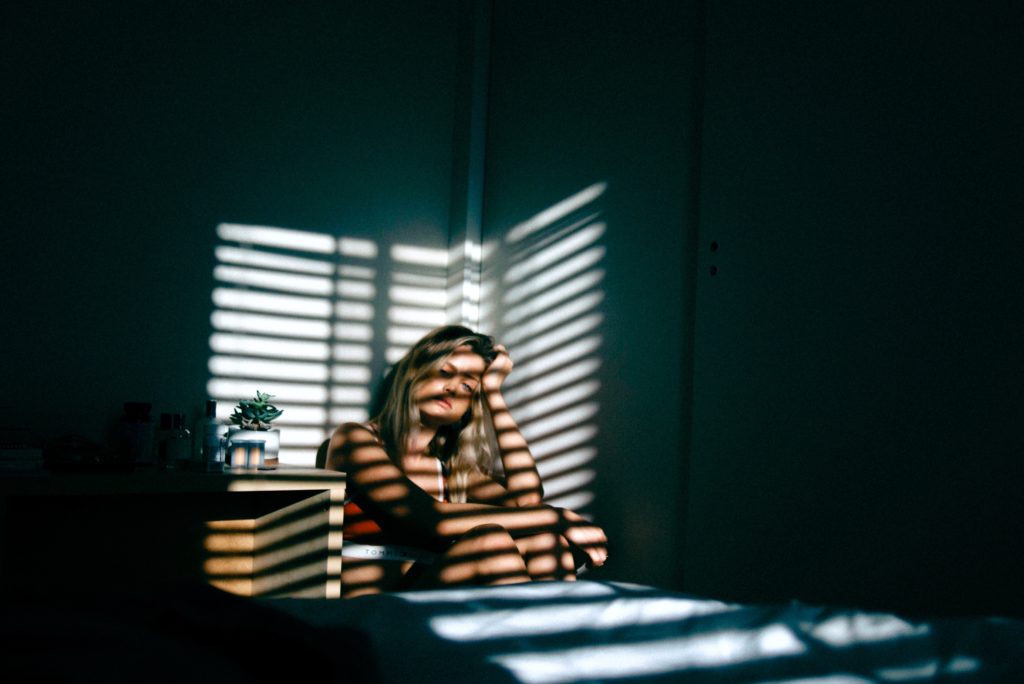What is Mental Health?
Millions of people in the United States suffer from some mental health disorder. Mental health disorders, such as depression and anxiety, can result from a wide variety of issues. The underlying reason for mental health struggles can stem from brain chemistry imbalances, family history, genetics, past traumas, or abuse. Although it may be difficult, it is possible to manage depression. It’s even possible to overcome mental health disorders fully.
The term “mental health” covers the overall well-being of your emotional, social, and psychological health. “Mental illness” is any disorder or dis-ease of a person’s mental health. Among other things, the state of our psychological health mostly affects how we perceive life, how we interact with others, how we view ourselves, and how we feel.
There is a wide range of helpful resources for anyone who experiences depression or other mental illnesses. The form of assessment, treatment, and continued aftercare depend on the individual and the severity of their mental illness. In this article, we will review some of the most common, sought-out plans for dealing with depression and mental illness. Firstly, let’s look at what depression looks like.

What is Depression?
Depression is one of the most common mental disorders known. Having depression can negatively affect how a person thinks, feels, and acts. Everyone feels sadness at times, but depression is more than just sadness. A person with depression will feel hopeless or worthless. They often lose interest in their favorite activities, family life, work ethic, and self-care. Symptoms of depression can range from mild to severe, or even suicidal. The American Psychiatric Association estimates that one in every fifteen people is affected by depression.
Since depression is the most common mental illness known today, it is also the most treated in mental health facilities. The good news is there are many ways to help people suffering from depression. Treatment, therapy, and recovery from depression are entirely possible. Although there is no “one-pill” magical solution to cure depression completely, it can be managed.
What Does Depression Look Like?
Anyone can experience depression or Major Depressive Disorder. Symptoms can look different for each person. However, several indicators can reveal whether or not a person is showing signs of this mental illness. These symptoms include:
- Trouble sleeping; oversleeping
- Prolonged periods of extreme sadness or hopelessness
- Loss of interest in once-loved activities
- Loss of appetite; weight changes
- Fatigue, exhaustion for no reason
- Negative beliefs of worthlessness, guilt, or having “no purpose in life.”
- Difficulty concentrating or completing tasks
- Ideas of death or suicidal thoughts
- Self-injury (cutting, hitting, burning, scratching, etc.)
- Excessive alcohol or drug use
- Isolation and spending an abnormal amount of time alone
- Avoiding friends, social events, or human interaction
Whether these symptoms are mild or unbearable, it’s important to seek medical help. There are different levels of treatment available for depression. Before undergoing treatment, though, it’s wise to undergo a medical assessment. Assessments will help you better determine where you stand with your mental health overall.

Assessment and Intervention
The first step in treating mental disorders often involves getting an assessment from a professional. Sometimes, in more extreme cases, an intervention is needed. Mental health interventions are personalized sessions directed by a professional interventionist. Intervention sessions involve the depressed person’s family and closest friends. An intervention intends to let the suffering person know how much their loved ones care. As a group, they can offer to help their loved one seek effective, caring recovery.
Interventions can be intense. However, mental health assessments can be done without a need for an intervention. Professionals at hospitals, alternative treatment centers, or personalized therapy providers can adequately assess the individual. Evaluation is essential for the health professionals, family, and the person receiving treatment to understand the mental illness and recovery options.
Treatment
After an adequate assessment, treatment can be sought. The type and length of necessary treatment vary from person to person. The most common options for mental illness and depression treatment are:
- Psychological hospitalization
- Inpatient / Residential Treatment
- Outpatient Treatment
- Psychotherapy
- Medication
- Complementary & alternative medicine
- Support groups
- Art or other expressive therapies
Psychological Hospitalization
If the mental disorder or its symptoms are severe, hospitalization might be specifically required. Usually, patients in need of a mental hospital are in a delusional or unstable state. They could be a danger to themselves or simultaneously to others. Also, they might be unable to medicate or care for themselves properly.
An individual can be involuntarily hospitalized, or they can voluntarily admit themselves. Being in a hospital for psychological reasons is a time to restabilize, monitor, and offer emergency care if needed.
You or a loved one might be in need of hospitalization if these symptoms listed are present:
- Suicidal thoughts or attempts
- Threatening to harm others
- Inability to care for oneself
- Hasn’t eaten or slept in days or weeks
- Hallucinations, delusions, paranoia
- Severely abnormal mental symptoms
Inpatient / Residential Treatment
Inpatient treatment centers exist for all kinds of mental health disorders. These treatment centers, similarly known as “residential” treatment, is when a person stays for an extended period at a specific location. Here they receive help from a team providing recovery and care. There are close care and moderate supervision of the patients, but not as extreme as a hospital. Inpatient treatment centers may be local. Other inpatient centers can be further away, resort-style facilities. In either case, most residential treatments include:
- Medical supervision & medication
- Group therapy
- Individual counseling
- One-on-one psychotherapy
- Recreational activities
- Meals
- Social activities, chores, and responsibilities
- Drug tests or 12-step drug & alcohol support groups (if applicable to the patient)
- Alternative or complementary therapies (i.e., art therapy, gardening, yoga, etc.)
Inpatient treatment is a great way to offer 24/7 care to someone with moderate to severe mental disorder symptoms. Overall, the experience at an inpatient center can help treat and balance a person back to managing their life. This includes taking regular medication and forming healthy relationships.

Outpatient Treatment
Outpatient treatment is similar to inpatient treatment but not as severe. This kind of treatment does not require 24-hour supervision. A person in outpatient care can somewhat function in daily life on their own. They show mild to moderate mental health symptoms. Generally, they can maintain a sufficient level of support. However, also, they could explicitly need monitoring. This includes:
- Management of psychiatric medication
- Weekly or frequent individual therapy
- Family, marital, or couples counseling
- Regular support group sessions
- Consistent check-up visits at a medical, mental health center
- Wellness evaluations whenever necessary
- Substance abuse treatment (if applicable)
Outpatient treatment can generally be used for a wide variety of people with different struggles. An excellent example of outpatient treatment would be a person trying to manage their lifelong depression. The patient might visit a personal psychotherapist three times a week to work through emotional blocks. Additionally, they might see their psychiatrist regularly to watch the best medication options. Since depression medicine can take weeks or months to notice a change, weekly psychiatry visits are crucial. Specifically, managing dosage, mood changes, appetite, or other side effects can make a difference between life or death. Similarly, the person might attend an evening support group with local peers in a safe space to talk about their similar struggles.

Transitioning
No matter which treatment someone with depression undergoes, there are helpful ways to transition back to a healthy life.
Halfway Houses
If necessary, halfway houses are a good option. This is especially true for someone coming out of residential or hospital treatment. To emphasize, halfway homes are transitional living situations upon being “halfway” back to a healthy life. It’s required to remain sober and on top of things while living in a halfway house. Although usually known for recovering addicts or prisoners, there are halfway houses for people coming out of treatment for depression. Some are specific for teens, women, or those with other rare mental illnesses. In general, there is a substantial amount of supervision, rules, medical help, and mentorship that a halfway house can offer.
Support Groups
Support groups are another helpful option for anyone living with depression. Aside from psychotherapy, support groups can give people a chance to talk about their depression openly. There are usually support groups in most cities which are easy to find. Mentors, caring guides, and understanding peers can, in fact, help regularly remind anyone with depression that they are not alone.
12-Step or related sobriety programs should be pursued for any depressed person with a history of substance abuse. Just like support groups, twelve-step programs are everywhere, with attention to specific struggles. In truth, many people all around the world have successfully overcome addiction and depression through twelve-step programs.
Therapy
All in all, weekly therapy visits are also recommended. Therapy helps keep strong support through all the ups and downs of one’s depression. It’s also crucial to find a professional therapist or psychologist you can connect with on a personal level. If you don’t feel entirely comfortable with the methods or personality of your psychologist, find another one. There are thousands of others out there who can better “click” with you and help treat you on a long-term basis.
What to Expect After Treatment
After being in a mental health recovery center or program, you might think you’re “cured.” But that is not always the case. You might feel back to your usual self. Although this might be true, you shouldn’t give up on regular aftercare. By all means, you may experience less severe symptoms. However, it’s still vital to continue treatment. As shown above, the transitions can help guide you back to a healthy life. Once you return to daily living outside of a treatment center, it’s especially wise to continue regular check-ups and mental health care.
Treatment aftercare is necessary, primarily as a preventative measure for falling back into unstable mental symptoms. With consistent therapy, support, and medical help, you can better maintain a functional state psychological health. If you do happen to spiral into a more difficult time coping with depression symptoms, your open help circle can significantly be of immediate help.
Generally, it’s normal to experience highs and lows in mental health, especially if you’re someone who has depression. But that’s okay. The key is to know the signs, be willing to reach out for help, and to continue taking care of yourself as best you can. In fact, what you learn in inpatient, outpatient, or hospital treatments can become tools for you in case a similar situation arises.
Self-Care
Above all, the better you care for yourself on a daily basis, the more successful at overcoming depression you can be. Be sure to continue activities that bring you joy and fulfillment. Move your body and exercise, as physical movement can release stagnant energy and emotions. Try to eat a healthy diet as well, because more and more studies have been proving what you eat can drastically affect your brain function.
Improved Mental Health
Taking charge of your depression can be significantly life-changing. When you choose wellness and positive mental health, you experience a better life. Not only do you benefit, but your friends, family, and people you care about can benefit as well. With proper treatment and mental health care, you can cope with stress. Without a doubt, you can better live to your full potential. Your relationships will be more fulfilling as well. As a living example of overcoming depression, you can even share hope with others who live the same struggles as you.
How to find a program:
If you or someone you know is in need of a treatment center for depression, Prevail Intervention has many options. Try calling our helpline for mental health. Our hotline is open 24/7 for free, anonymous support. We can help you locate a treatment center near you. If your situation involves substance abuse or alcoholism, we have other resources as well.
Helplines:
Addiction Helpline: Prevail Intervention
Depression Helpline
Suicide Prevention Lifeline
BetterHelp – Free Online Helpline
Related Resources:
Get Help for Depression and Mental Health
Mental Health Interventions for Your Loved One
Substance Abuse Treatment Centers
State Licensing for Mental Health & Substance Abuse Treatment
